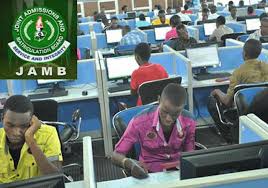The Executive Secretary of the Nigerian Educational Research and Development Council (NERDC), Professor Ismail Junaidu, has said the only way to effectively respond to worldwide changes and give Nigerian children the chance to develop new skills and competencies for thriving in the contemporary world is to give them the necessary learning opportunities through curriculum reform.
Speaking Tuesday in Abuja, during a policy committee meeting on the new secondary education curriculum structure and benchmarks, Junaidu said the current Senior Secondary Education Curriculum (SSEC) was introduced during the 2011 academic year and long overdue for changes to reflect current world realities.
He said the Council is fully committed to ensuring the full implementation of the activities contained in the Roadmap for the Education Sector (2024-2027) and contribute its quota to achieve “the purpose-driven Renewed Hope Agenda of Mr. President, Bola Ahmed Tinubu.”
He said: “The 2011 academic year witnessed the introduction of the current Senior Secondary Education Curriculum (SSEC). This came about after we conducted a thorough review of the school curricula starting at the primary school level.
“The old Senior Secondary Education Curriculum was found to be no longer relevant to the overall objectives of our education in terms of human capital development, job creation, value reorientation and poverty eradication.
“Additionally, there was a pressing need to achieve the Education for All (EFA), Millenium Development Goals (MDGs), and the homegrown National Economic Empowerment and Development Strategy (NEEDS).
“There was also the urgent need to create opportunities for students to acquire the relevant trade and entrepreneurship skills needed for poverty eradication, job creation, and wealth generation as well as consolidate the foundation for ethical, moral, and civic values acquired at the basic education level.
“It has been 12 years since the introduction of the current SSEC. You will agree with me that times have changed, the world has advanced, new ideas have emerged, knowledge has progressed, new global goals have been set, new skills created, and new technologies developed.
“The only way we can effectively respond to these changes and give our children the chance to develop new skills and competencies for thriving in the contemporary world is to give them the necessary learning opportunities through curriculum reform.
“Let me inform you that our main goal in this current initiative is to develop a curriculum that not only satisfies the demands of the period, but would also help us to build the future that we desire as a nation. Through this revision process, we hope to better position Nigeria to contribute to the global agenda.
“We recognise that the curriculum is an outcome of the decisions of the people as to what knowledge, skills, values, and competencies students should learn in school for them to live and meaningfully contribute to the development and growth of society.”
He added: “In order to ensure that the curriculum really reflects the needs and ambitions of all Nigerians, the Nigerian Educational Research and Development Council (NERDC) launched a number of programmes to intricately engage stakeholders.
“These specifically are the national stakeholders’ dialogue and nationwide needs assessment study that afforded us the opportunity to have in-depth conversations with teachers and school managers on important issues pertaining to the SSEC implementation.
“The national dialogue, which took place in each of the six geopolitical zones, namely, South-East, South-South, South-West, North Central, North-East, and North-West, was the first of its kind in the history of curriculum development in Nigeria, and indeed, in most parts of the world.
“The dialogue was a stakeholders’ consultative forum where Nigerians, including students, shared their opinions on the challenges and expectations relating to the curriculum in terms of its contents, method of delivery, and core learning experiences.
“The dialogue afforded us the rare opportunity of deeply engaging with students on what they want to learn and how they would want to learn such. It also gave us the chance to have critical stakeholders, including some of you here today, to actively participate in the design of the architectural framework for the review of the curriculum.
“In line with best practices, NERDC collated and harmonised the views, inputs and suggestions of stakeholders including students to come up with the guidelines and framework for the review of the SSEC. The guidelines provide a clear roadmap for the review of the SSEC.
“The development of the guidelines followed through several stages which involved curriculum experts, teachers and policy makers.
“To further consolidate the guidelines NERDC organised a 2-day stakeholders’ workshop, precisely on the 21st and 22nd of August 2023, to validate the draft guidelines. The validation workshop involved professional bodies, members of the academia, practitioners in the industry, development partners and a cream of government agencies.
“All these processes were painstakingly carried out with the sole aim of arriving at a globally competitive competency and outcome-based curriculum that will take care of critical emerging issues and provide the platform to instil the 21st century skills in our students. It is also to have a curriculum that will focus more on what the learners can do rather than what they can know.
“This meeting is another stage in our effort to democratise the curriculum development process which is anchored on the philosophy of having all stakeholders significantly contribute to what is taught in schools and how it is taught. The HLPC meeting is expected to ratify the guidelines which will then launch us into the technical process of curriculum drafting based on the guidelines.
“Finally, Honourable Ministers, I wish to assure you of the commitment of NERDC to ensuring that the curriculum meets the needs of our nation. I will equally want to assure you that critical stakeholders will be involved in the curriculum drafting process.”
In a brief remark, the Minister of Education, Professor Tahir Mamman SAN, said only quality education will save Nigeria from disaster, saying the federal government will do everything possible to give quality education to citizens.



